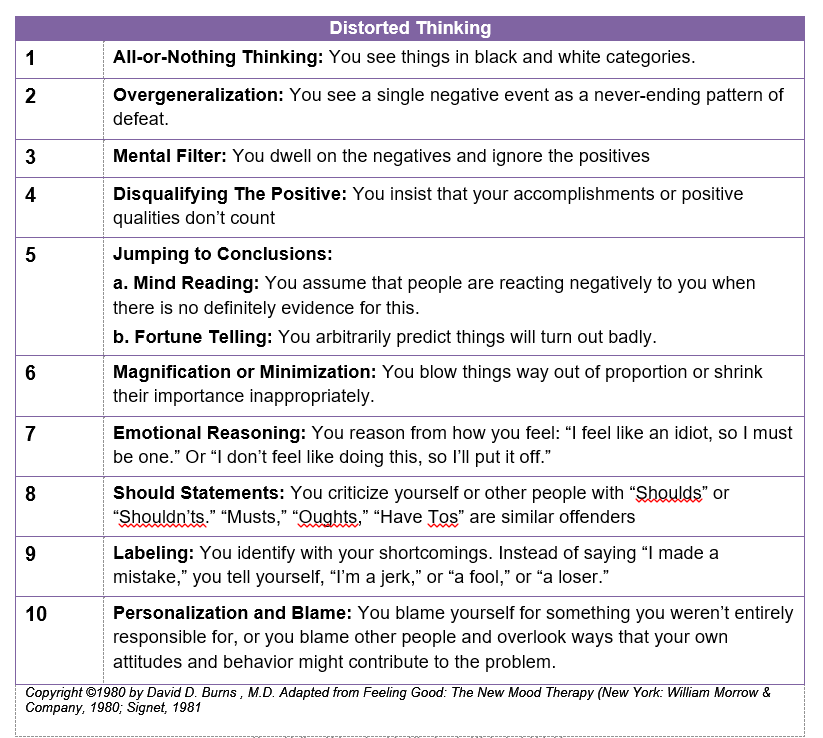Who do you work with that just drives you bonkers? Do you wish there was a way to wave a magic wand and instantly remove the immediate irritation, angst and frustration you associate with them?
While I don’t have a magic wand, thanks to neuroscience, I do have a practical tool that you can start using right now that will reap immediate results. Bye Bye Angst – Hello Focused Presence.
The tool? Reframing.
By definition Reframing is a way of viewing and experiencing events, ideas, concepts and emotions to find more useful alternatives. It is a practical and valuable tool to shift perception, your perception of self or someone’s perception of themselves.
Same behavior – different contexts – create different meaning.
Example: You’ve just mopped the floor and your spouse makes tea. While transferring the dripping tea bag from the pot to the garbage, tea drips all over the floor. You could focus on the “bad” behavior, complain, start a fight and have no tea or affection that afternoon. Or you could look at those shining drops and say to yourself, “Wow, I have someone who loves me in my life! And they’ve made me tea. Just look at those tea drops on the floor, there’s the proof I’m loved!” And then enjoy that cuppa with your messy but loving partner.
The behavior and the facts of the matter are the same, we’ve just altered our self talk to make different meaning from the tea drops on the floor. And after all, at the end of the day, do you care more about some drops of tea or about your relationship?
According to research from Stanford University, only a half hour of complaining every day physically damages a person’s brain. Neurons in the hippocampus (the part of the brain responsible for problem solving and meta-cognition) are injured when flooded with the chemical signature of the body’s response to negativity, whether you are the complainer or the recipient of the complaint.
And worse yet, complaining can be habitual. Once the complaining aspect of Critter State becomes acceptable we all just normalize around it. According to Guy Winch PhD, author of “The Squeaky Wheel”, venting also puts cortisol, the stress hormone, into our bloodstream.
That’s not to say, don’t notice problems. Too much rose-colored glasses can also become a liability. To know when to reframe and when to address with some targeted feedback , let’s take Pope John the XXIII’s timeless advice here: “See everything, overlook a great deal, correct a little.”
Where we’ve decided to “overlook”, grooving your brain to reframe helps keep your brain healthy and everyone in the Smart State.
Sometimes a whole team can be stuck in a cycle of negative distorted thinking.
Humans create distortions. The brain naturally and usefully deletes, distorts and generalizes. This is necessary for survival as without this capability we would simply be overwhelmed with input. However, occasionally these distortions can get grooved into a not-so-useful pattern. Look out for some common distortions listed in the table below:

Reframing here allows you to shift your thinking and expand your perception. Think of it as putting on a different pair of glasses – what would you see if you put on a pair of sunglasses with a heavy tint when you are in a dark room? You would see shadows and dark forms that you can’t identify. What happens when you take those glasses off? You may see the most beautiful room in the world. When you switch your glasses, what you see changes. Reframing, mentally and linguistically, does the same thing.
Try this exercise
Look through the above table. Which distortions are most potent for you? For your team? For your company culture overall? Name the distortion. Name the meaning that is being made from a behavior or circumstance. Think of it like an equation, in our minds, this behavior (or circumstance) = something negative. Then try replacing the negative with something positive and/or empowering. Inside your head you are saying: “That doesn’t mean (something bad), it means (something positive)!”
For example, what if there was a lot of labeling going on, and someone who made a mistake is a “careless loser”. Try applying the thinking “What if that behavior (making a mistake in this case) meant something different”. Then try thinking “Making a mistake means (something positive).” In this case, you could try, “Making a mistake means someone is trying new things, they are innovating and learning.” Look for some evidence to back up this new meaning. Then try saying it to others about a particular incident.
Make a game out of shifting the team out of distortions that are pulling you into Critter State. Using the reframe you came up with in the above exercise, try saying it to as many people as possible in a morning. Then sit back and watch it go around just like a game of telephone. The words will shift but the intention won’t.
Reframing is powerful when working with your teams. This tool allows you to change your stance and to help shift the team out of the tension triangle to empowerment.






